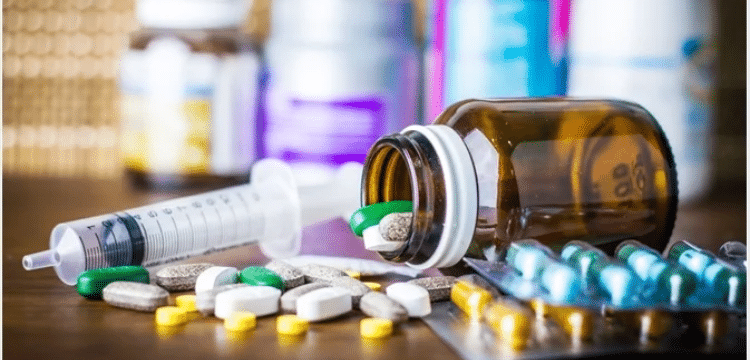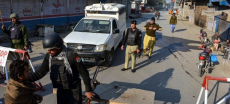[vc_row][vc_column][vc_column_text dp_text_size=”size-4″]ISLAMABAD: Doctors, patients, and distributors confirmed on Thursday that Pakistan is experiencing a severe shortage of the life-saving medications required to treat cancer, diabetes, epilepsy, and heart conditions. They said that thousands of lives were at risk because these medications were not available on the local market.
The shortage has been felt throughout the nation in recent weeks after the State Bank of Pakistan (SBP) imposed an impromptu ban on the import of raw materials used by pharmaceutical companies in order to protect its $4.6 billion in foreign exchange reserves, which is only enough to cover imports for about three weeks. “The insulin is short in the market and diabetic people like me are running from pillar to post to get it,” Abdul Rehman, a 22-year-old man, told Arab News.
“A black market has emerged due to this shortage where people have to pay double the price for these medicines to get them in very limited quantity,” he continued, urging the government to at least ensure the availability of life-saving drugs in the market.
Likewise, some essential medicines for the treatment of cancer and heart conditions are also not available. According to Jahanzeb, a spokesman of CHEF International distribution company who declined to give his last name, “hundreds of cancer and heart patients come us daily for drugs, but we propose them alternatives owing to an urgent scarcity,” he said to Arab News.
He claimed that practically all medications for the treatment of cancer and heart diseases were imported for domestic use and added that the import ban had resulted in a shortage of these medications.
Injections like Adriblastina, Cisplatin, and Carpsol, according to Jahanzeb, are crucial for the treatment of cancer but are no longer sold in stores He also informed that some essential locally manufactured drugs like Tegral, used to treat epilepsy, were also short in short supply since pharmaceutical companies were not allowed to import raw material. A representative of BH Distributors, Waseem, said some drugs to treat blood cancer, such as Gleevec and Tasigna, were also not available and patients were “forced to consume low-quality alternatives.”
Rizwan Iqbal, a representative at Novartis Pakistan, which imports Gleevec and Tasigna medicines, confirmed the drugs were not available in market due to “the government’s ban on import.”
“We are hopeful these crucial drugs will become available to patients in Pakistan in the first week of February if the government allows us to import,” he told Arab News. “At the moment, we don’t have any shipments available for distribution.”
The government on the other hand appears oblivious to the situation as no concrete measure is on the cards of the health ministry to ensure the availability of these medicines. “I am not aware of it,” Dr. Shazia Sobia, a parliamentary secretary for National Health Services, Regulations and Coordination, told Arab News. “The minister may have discussed the situation with the finance ministry or taken up the issue in the cabinet meeting.”
Pakistan’s health minister Abdul Qadir Patel did not return calls to present the official perspective on the issue until the filing of this report. Dr. Abdul Ghafoor Shoro, secretary-general of the Pakistan Medical Association, told Arab News that the situation was getting worse by the day and that thousands of patients’ lives were in danger due to the lack of medications throughout Pakistan. To prevent a health disaster in the nation, he continued, “the government should open the import of medications and raw materials for domestic manufacturing on a priority basis.”[/vc_column_text][/vc_column][/vc_row]











